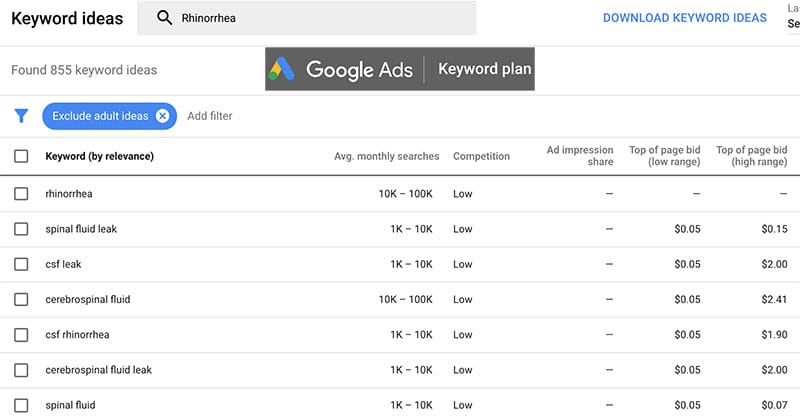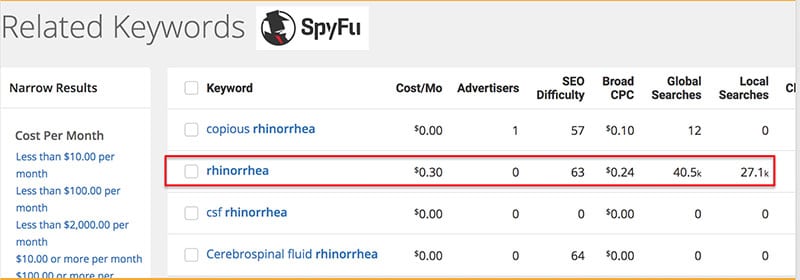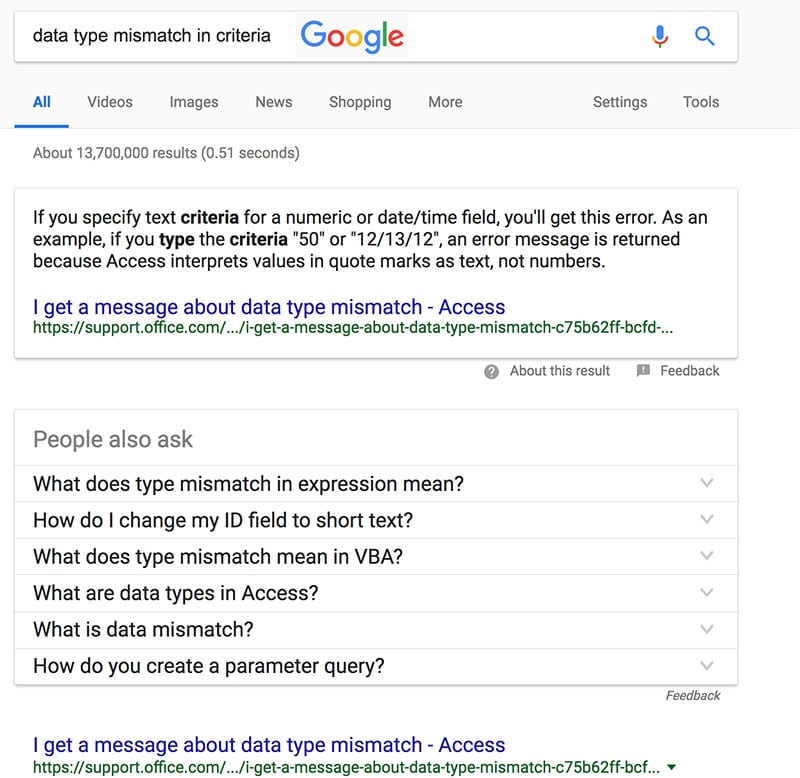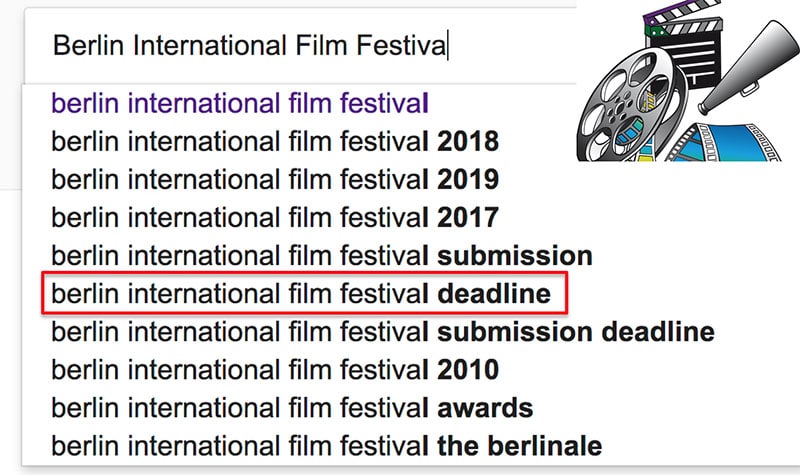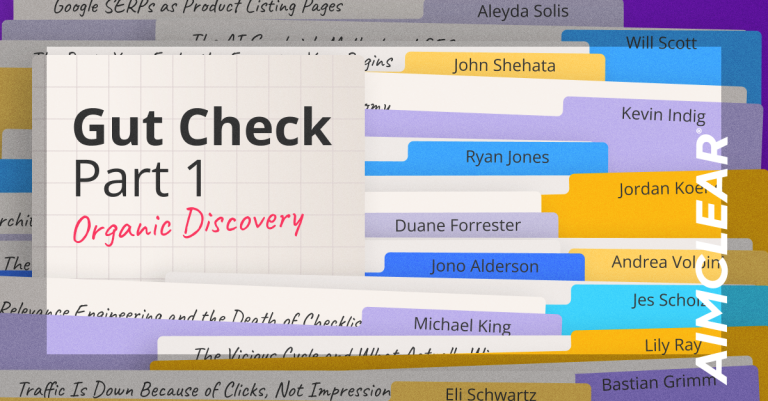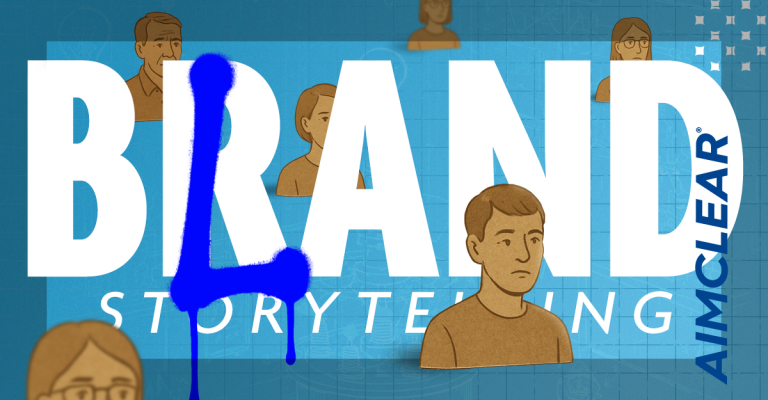Content marketers usually seek blended KPIs, including SEO prominence, page views per visit, top and mid funnel entrances shepherding visitors on the journey to conversion. Paid content amplification is especially useful when users predictably require multiple touches before converting to a lead or sale. Commonly we use Facebook, Twitter, LinkedIn and other display ads channels to purchase content clicks. Psychographic targeting is powerful because users can be defined explicitly.
Utilizing search pay per click ads for content promotion is an often overlooked tactic because the cost seems expensive. Also, it’s counterintuitive for many performance acquisition marketers to use paid search for content because it’s more complicated to track clicks back to ROAS (return on ad spend).
The trick is to go geeky and use keywords that are not competitive, because there’s no obvious conversion intent. Traditionally, performance marketers avoid spending money on informational searches, because they’re not commercial. This is the opportunity at hand.
Google makes you pay, no matter what, to be on the first page. It’s an auction so the more competition the more the CPC. When there are no other advertisers and your quality score is spot-on, then you can score very low CPCs. The opportunity here is that most marketers who purchase Google Ads are concerned solely with conversion, and therefore only bidding on competitive and therefore expensive KWs for conversion goals.
For marketers willing to get out of the box, buying geeky informational keywords uncontested by other advertisers can substantially lower the cost of first touch content marketing amplification.
Say the marketing assignment is to sell over the counter allergy relief medication. “Rhinorrhea” is another way to say runny nose. It appears there are no advertisers in the search engine results pages (SERPS). Boom! Rhinorrhea is such a sideways expression of runny nose, that the word can be considered a semantic expression of psychographics. Because there are no other advertisers, the cost may be low. Here are the SERPs for Rhinorrhea.
A quick look at Google Ads Keyword Planner shows there is in fact search inventory available with low competition. That’s what we’re after, search volume and no advertisers.
SpyFu Related Keywords confirms no advertisers, low cost and plenty of inventory. This keyword is perfect for paid psychographic content marketing.
There are any number of reasons to target a Microsoft Access software user. “Data type mismatch criteria” is a Microsoft Access message, uber nerdy. The SERPs seem absent competitors. Data type mismatch is a query most often tendered by MS Access users to the psychographic match seems reasonable.
Let’s check. Yep, verified in Keyword planner.
SpyFu corroborates there are no advertisers and search inventory is available. Sure the inventory is low, so consider bucketing with other terms. It’ll just take some more hunting to build out the low cost Ad Group.
Travel marketers may be interested in the keyword “Berlin International Film Festival deadline.” Often filmmakers attend festivals they enter their movies in. SO, this may be a cool psychographic segment to target future Berlin festival attendees.
Keywords planner confirms the opportunity.

Buying keywords as a psychographic content amplification tactic is not necessarily about immediate conversion, which may be a challenge for some to measure, especially in Europe considering GDPR. An absolute for very low CPCs is that there are no other advertisers. Keep in mind that many advertisers part spends by week, day, time of day, and other data. So, be vigilant and use scripts to keep CPCs compliant to acceptable top or mid-funnel content marketing costs.
Bing and other paid search engines also work similarly for this tactic, internationally as well. Remember to segment retargeting/remarketing so as to better understand which psychographic keywords led to conversions. Happy content marketing!


